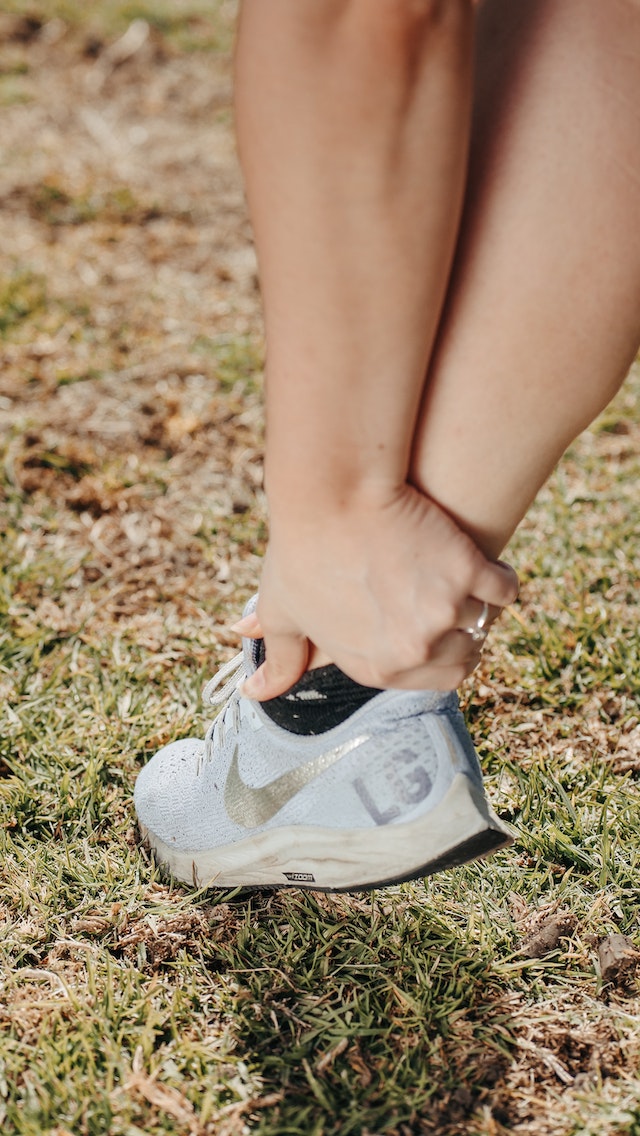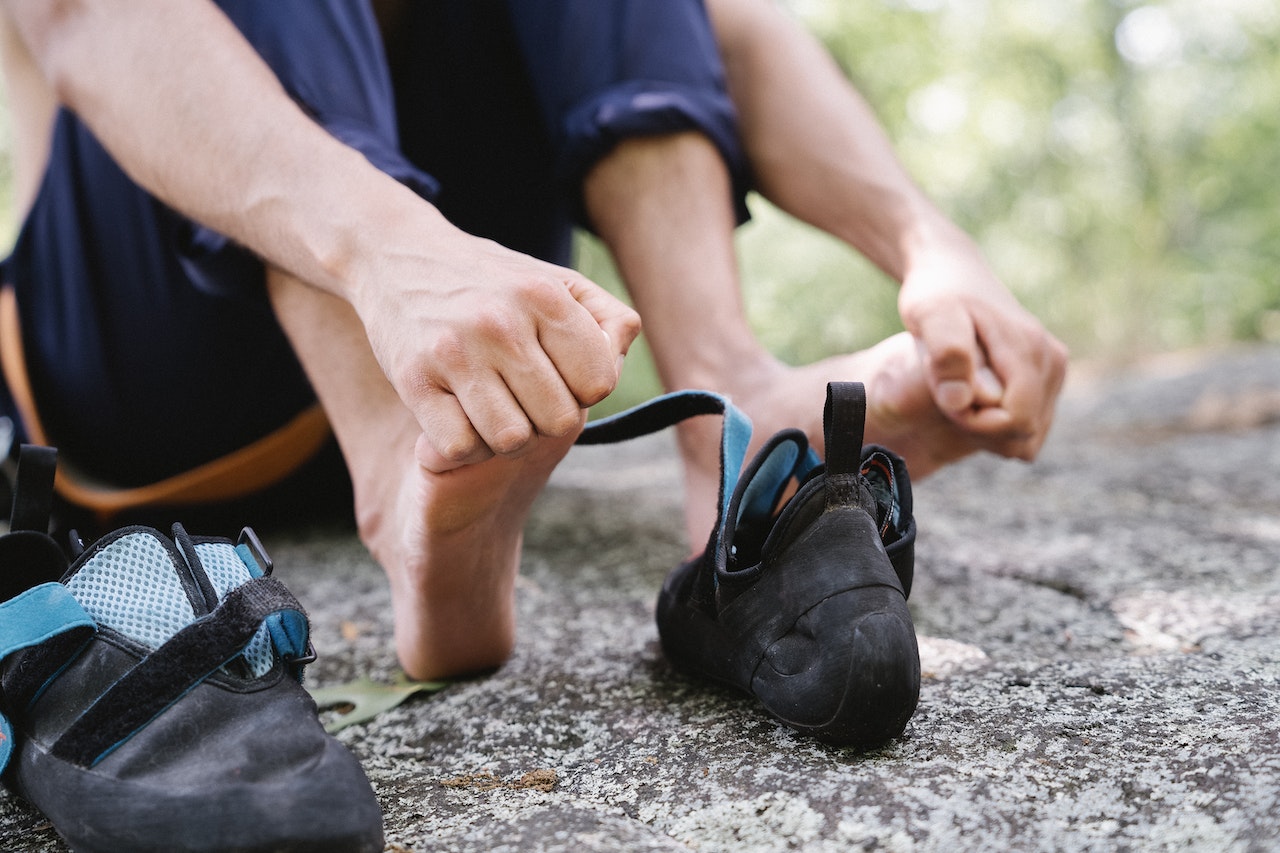What is Gout?
One kind of arthritis is gout. Small crystals that grow in and around the joints can produce abrupt, excruciating pain. There might be some edema as well.
A gout episode may occasionally begin unexpectedly, while other times it may be brought on by factors like:
- A high temperature
- Becoming dehydrated
- Drinking too much alcohol
- Eating a large meal with a lot of fat
- Suffering an injury in a joint
- Taking medicines for high blood pressure or diuretics
Regardless of how long a gout attack lasts, you should get help as soon as you experience any of the symptoms listed below.
Gout Symptoms
The symptoms of gout are:
- Sudden, severe pain in a joint
- Red skin that is swollen and gained around the painful joint
- Hot skin on or around the joint
Gout symptoms can affect any joint, but fingers, knees, ankles, and toes are the most often afflicted. Weeks, months, or even years may pass between gout attacks. The majority of gout sufferers have several flare-ups over time. Gout that frequently flares up is referred to as chronic gout.
You may have an infection if:
- The pain becomes even more severe
- You have a high temperature, but you’re shivering
- You feel unwell.
- You cannot eat.
If you experience any of these signs, speak with your primary healthcare practitioner. Quickly seeking treatment will lessen any harm the virus may do.
Who is likely to get gout?
Gout is more likely to develop in those who:
- Male and older than 30 years old.
- A weight problem
- Excessive use of alcohol, especially beer or spirits
- Consume too much red meat or shellfish
- Own at least one of the following health issues:
- Diabetes
- High cholesterol
- High blood pressure
- Osteoarthritis
- Problems with their kidneys
- Have been through menopause
- Have gout in your family, especially in close families
- Undergoing surgery
- Have recently been injured
- Use diuretics or other high blood pressure medicines.
What causes gout?
Uric acid, a consequence of purines in the blood, builds up and leads to gout. When you use the restroom, uric acid is expelled from your body. Both of these compounds are healthy, but excessive uric acid production or impaired renal function can cause uric acid to accumulate in the blood. If uric acid builds up too much, it can cause small crystals to grow in and around your joints. The discomfort and swelling are brought on by this.
Does gout cause any complications?
Gout may lead to a few physical and psychological issues.
Joint injury
Given how gout affects the joints, it may not come as a surprise that repeated flare-ups can cause joint damage, especially if the gout is left untreated. Surgery can be necessary if the damage is severe.
Kidney stones
High uric acid levels might result in kidney stones in addition to causing gout. Minerals and salts that have crystallized and adhered to one another to create dense deposits make up kidney stones.
Kidney stones may make urination unpleasant and make you feel as though you need to use the restroom more frequently. Other signs and symptoms include nausea, vomiting, blood in the urine, murky urine, and excruciating pain in the side, back, lower abdomen, and groin.
A natural stone passage from the kidneys is occasionally possible, however, this can be unpleasant and even painful. Other times, surgery could be required to get rid of them.
Tophi
Tophi are tiny, lumpy white growths. As a result of the accumulation of crystals that grow around your joints when you have gout, they develop beneath the skin. If you have chronic gout, you are more prone to develop them. Tophi normally form around the ears, elbows, fingers, forearms, heels, knees, and toes.
Sometimes they can be painful, but not always. They may swell up and discharge, in which case you should seek medical attention. Tophi that are inflamed or unusually big may need to be surgically removed to protect the joints. Smaller tophi can be reduced by combining medicine and a lifestyle change.
Anxiety or depression
Gout symptoms might make it challenging to carry out daily tasks. Your mood may be impacted as a result, and in more extreme circumstances, this might result in a mental health illness like depression or an anxiety disorder.
Gout Flare-Ups
Is gout curable? Although gout is an irreversible ailment, there are efficient techniques for a doctor to manage the symptoms. Even while therapy is often ongoing, if you stick to your plan, it may occasionally be so successful that it stops you from experiencing further gout episodes.
Get a Diagnosis
If this is the first attack you’ve ever had, consult a doctor right away. Because there is a paucity of information on how to manage elevated uric acid, gout is one of the diseases that is least frequently identified. Now, we have more knowledge. A plan of action should be in place if you are going through a flare; it should have been developed with your doctor. The sooner you begin therapy and pain management, the quicker you will recover.
Take the Right Anti-Inflammatory Medications
Effective treatments include prescription steroids, over-the-counter NSAIDs like ibuprofen (Advil), aspirin (Vazalore), and naproxen sodium (Aleve), as well as a prescription anti-inflammatory called colchicine (Colcrys), which affects how your body responds to uric acid crystals. Which option is ideal for your particular requirements will be determined by your doctor. For instance, NSAIDs should not be used if you have renal illness, and steroids may worsen your blood sugar levels if you have diabetes.
Free the Joint
Even modest pressure applied to the injured region might be quite painful. They reportedly find being under a bedsheet intolerable. Verify that the joint is not restricted when it flares up.
Rest and Elevate
Stay away from the injured joint and try to keep it as high as you can.
Apply Ice — if You Can Bear It
If you find it difficult to handle icing, think about using a heating pad instead. “Apply ice if you can do so comfortably without creating pain,”
Watch Your Diet
Limiting consumption of foods high in purines, such as red meat, organ meat, and shellfish, as well as alcohol, especially beer and hard liquor, can help decrease uric acid levels.
Stay Hydrated
The uric acid crystals that cause gout can be flushed out of your system by drinking water. “A well-hydrated patient should drink enough fluids to urinate every two to three hours,”
Practice Mindfulness and Meditation
The good news is that a gout episode will pass eventually. You may manage the discomfort in the meantime by engaging in practices like guided visualization, mindfulness, yoga breathing, and meditation.
Create a Support Network
Due to the stigma associated with gout, many people suffer in silence. Share your condition with dependable family members and friends and ask for help when a flareup occurs.
Eat a healthy diet
The government’s Dietary Guidelines propose the following foods as part of a healthy, balanced diet:
- Dark green, red, and yellow veggies, as well as beans, peas, and lentils, are among the vegetables.
- Fruits of all types
- Especially wholegrain grains
- Dairy products, such as fortified dairy substitutes or low-fat dairy products like yogurt and cheese
- Lean meat, poultry, eggs, beans, peas, lentils, nuts, and seeds are all sources of protein.
- Various oils, such as vegetable oils
Limiting the consumption of sugar, salt, and saturated fat is another aspect of a healthy diet. Some meals are best avoided by gout sufferers as they may bring on an attack. These consist of beef, lamb, and pork are examples of red meat, among the organ meats are kidneys and liver, seafood, especially sardines, scallops, anchovies, mussels, trout, and tuna. These foods contain a lot of purines. When purines are broken down in the blood, uric acid is produced, and too much uric acid may cause gout.
Weight reduction is a benefit of a healthy diet since it decreases strain on the joints, especially the hips and knees, which can be helpful for those with gout.
Stay in touch with your doctor
Your doctor will be able to monitor your overall health, assist you in adhering to your prescribed treatment plan, and respond to any inquiries you may have.
Make time for physical activity
Exercise may seem counterproductive if you have a disease that affects your joints, yet it is really important for your general health. It boosts mental health, strengthens your bones and muscles, decreases blood pressure and cholesterol, lowers your chance of developing conditions like heart disease and stroke, and makes daily tasks easier.
The goal is to try low-impact activities rather than strenuous activities that put a lot of strain on your joints. Anyone with joint problems can benefit from swimming, cycling, and walking for this reason.
Conclusion
In conclusion, uric acid crystals that collect in joints produce gout, a painful type of arthritis. It can be brought on by several circumstances and frequently affects older men who have certain risk factors. Although it cannot be cured, it can be controlled with medicine, dietary adjustments, and a healthy lifestyle. Kidney stones, tophi, and joint injury are examples of complications. Effective gout management requires early diagnosis and treatment, the maintenance of a social support system, and regular exercise.




